Afghanistan War, Civil Liberties, Gaza, Human Rights, Iraq War, Prison Industry, Targeting Muslims, Truth to Power
Podcast: Play in new window | Download
Updates:
—————-
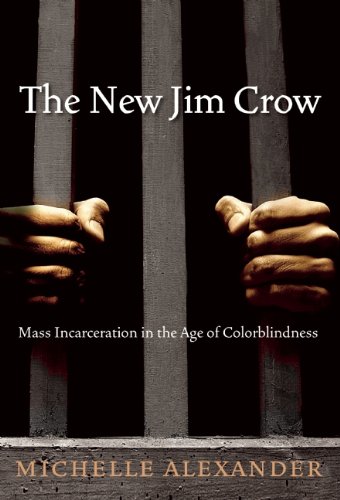
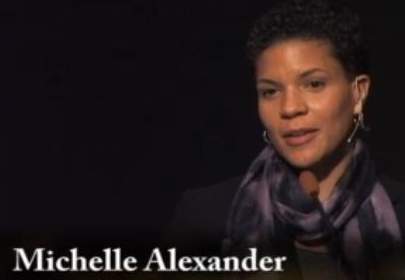
The New Jim Crow: Mass Incarceration in the Age of Colorblindness – Michelle Alexander
Michelle Alexander, author of the new book The New Jim Crow: Mass Incarceration in the Age of Colorblindness joins hosts. Michelle book has been called an incisive critique of racial caste system in America. As many celebrate the “triumph over race” with the election Barack Obama, the majority of young black men in the US are locked behind bars or permenantly labeled felons. Michelle Alexander, a former litigator who is a legal scholar, argues that the civil rights community—and all of us— are challenged to place mass incarceration at the forefront of a new movement for racial justice in America.
Michelle Alexander:
- I began in my own research to question the prevailing political media narrative about the reasons of people of color and ghetto communities cycle through the criminal justice system today, it is not as it appears.
- I argue that in a few decades after the collapse of Jim Crow, we as a nation, have managed to re-create as a racial caste in America, in some major American cities, the majority of African American men, are locked behind bars, labeled felons for life.
- Legally discriminated in employment, housing, access to education, and public benefits. We have not ended racial caste, we redesigned it.
- The Drug War was declared in relation to racial politics, not drug crime. About 30 million were arrested for drug offenses after the launch of the drug war. Most were for marijuana possession, now considered less harmful than alcohol or tobacco.
- Drug markets like American society generally are segregated by race and class
- The Supreme Court has made it virtually impossible for these cases to be brought.
- Baldus Study: McKleskey v Kemp
- Finding proof of conscious intentional discrimination is nearly impossible. Severe racial disparities are of no consequence, immunized not just the death penalty.
- I wrote this book, largely because I was deeply troubled by the failure of civil rights organizations and black leadership in this country to place mass incarceration and the war on drugs at the top of our racial justice agenda.
- Ten of millions of people in the United States are now regulated permanently to an under-caste, who are barred by law from seeking jobs or housing, public benefits, food stamps.
- Prisons have been holding many rural towns together as jobs have disappeared. The majority of people put behind bars are non-violent offenders. Every race suffers from this drug war, there are white people doing decades in prison for drug possession charges. The suffering of the drug crosses the color lines, and we got to be able to galvanize a level of public awareness and support.
- Something akin to a racial caste system is alive and well in the United States.
Guest – Professor Michelle Alexander, joined the OSU faculty in 2005. She holds a joint appointment with the Moritz College of Law and the Kirwan Institute for the Study of Race and Ethnicity. Prior to joining the OSU faculty, she was a member of the Stanford Law School faculty, where she served as Director of the Civil Rights Clinic.
Professor Alexander has significant experience in the field of civil rights advocacy and litigation. She has litigated civil rights cases in private practice as well as engaged in innovative litigation and advocacy efforts in the non-profit sector. For several years, Professor Alexander served as the Director of the Racial Justice Project for the ACLU of Northern California.
———
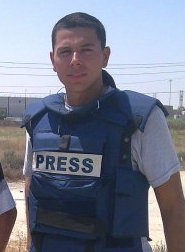
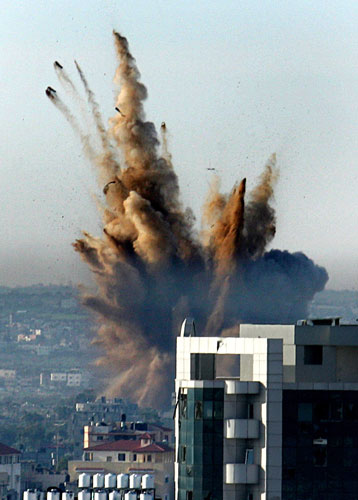

Ayman Mohyeldin, Al-Jazeera TV correspondent
Ayman joins hosts in the studio. He is an Al Jazeera TV correspondent and former CNN producer based in Baghdad. He was the only news producer allowed to observe and report on the US handover of Saddam Hussein to an Iraqi judge. Ayman has been stationed in the Gaza Strip since May 2008, where he has covered the Gaza siege. Ayman talks with hosts about his experience covering the destruction during Operation Cast Lead. Filmmakers and producers are working on a documentary film about Ayman’s war reporting in Palestine. Facebook link
Ayman Mohyeldin:
- Saturday December 27th, 2008, I had been based in Gaza. It had been quiet in Gaza up to November 4th.
- We started hearing the first wave of Israeli air-strikes that destroyed government buildings, police station within minutes. It kicked of a series of air strikes throughout the day. 200 hundred Palestinians were killed that day.
- We really saw everything, I can’t begin to describe the horrors of what we saw. On the first day we went to the main Gaza hospital.
- People of Gaza were trapped in a territory subjected to a very modern sophisticated, well trained and equipped Army.
- By Israel’s own admission rocket fire into Israel had dropped 98 percent 4 months ago (before Operation CastLead)
- What were the real reasons for the attack, the war was unnecessary given what was achieved in the 4 months prior.
- The siege on Gaza has allowed Hamas to tighten it’s grip on Gaza. The siege has not punished Hamas.
- Palestinians have recycled the rubber and steel from the destruction.
- I was standing on a rooftop and they were dropping hundreds of leaflets from planes, that read “your area is going to be attacked, if have any information about Hamas, please call this number.”
- Goldstone Report: Israel while bombing did not distinguish between military and civilian targets. Not a mistake.
- Targets include – Mosques, schools, ambulance drivers, government buildings, ministries, Palestinian Legislative Council Building.
- Gaza, historically was not an affluent place, it was a merchant trade route from Africa into Asia and Europe.
- Stunted growth is starting to appear among Palestinian children.
- Gaza: Desperate, frustrated, a sense of abandonment by the international community.
Guest- Ayman Mohyeldin, Arab American journalist based in the Middle East and is the Gaza Correspondent for the English language channel Al-Jazeera. Previously a producer with CNN and NBC, Ayman was one of the first western journalists allowed to enter and report on the handing over and trial of the deposed President of Iraq Saddam Hussein by the Iraqi Interim Government for crimes against humanity
———————-
Civil Liberties, Criminalizing Dissent, Human Rights, Iraq War, Torture, Truth to Power
Podcast: Play in new window | Download
Updates:
———————
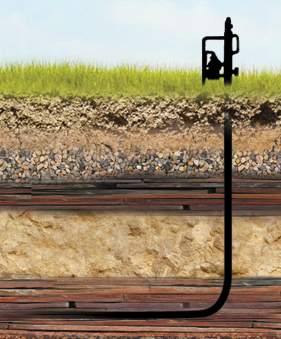
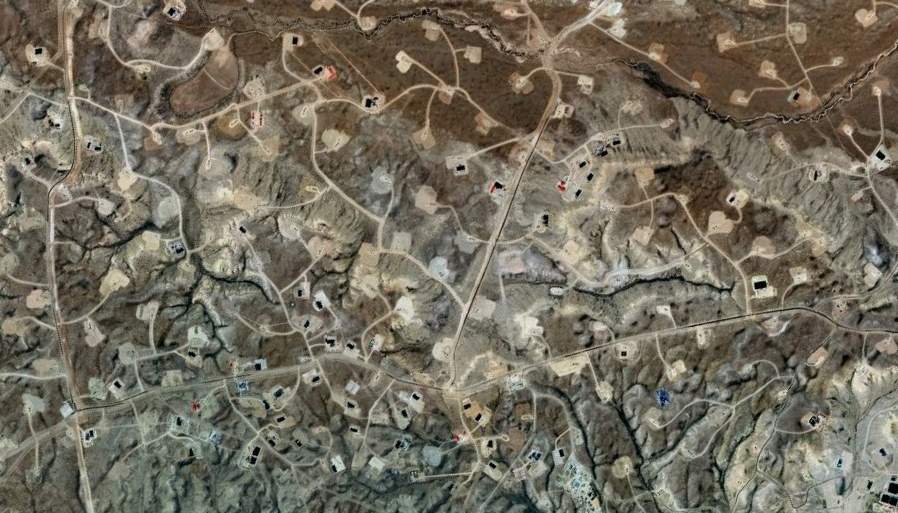
Citizen’s Battle Against Haliburton Gas Drilling Heats Up
Environmental community groups from New York, New Jersey and Pennsylvania gathered last week in Philadelphia, pulling together strategies to protect the Marcellus Shale watershed from natural gas drilling and hydraulic fracturing. The shale is believed to hold some of the world’s largest deposits of natural gas, and those that want to mine this resource say it will reduce dependence on foreign oil and boost the economy. The environmental and public health costs are too high say opponents. They point out that gas drilling causes increased runoff because the water used in drilling won’t be returned to streams.There will be more erosion, water quality will worsen. The lesson is clear from other locations that had the same drilling. Near the Jonah gas field in Wyoming, there was a drop in wildlife of 50%, an increase in crime, loss of businesses, a drop in property values, accidents like wildfires, more traffic, and a greater need for emergency services are some of the impacts of gas drilling. Damascus Citizens Man lights tap water on fire – video
Late last week, the EPA stated it will investigate how hydraulic fracturing will impact water supplies and water quality in New York State. The Upper Delaware River Watershed Basin is the source of pure water for 20 million people in Philadelphia, New York City and half of New Jersey. 171 products and 245 chemicals are used among millions of gallons of water and sand. Halliburton’s gas well drilling process is now exempt from the Safe Drinking Water Act, The Clean Air Act and The Right To Know Act.
Susan Blankensop:
- I live in New York City and I have a part time residency in Pennsylvania.
- In January of 2008, some neighbors of mine starting speaking about these land-men who were coming around the neighborhoods speaking to private land owners, and offering them money for their mineral rights under their land.
- It was all secretive, they said don’t tell your neighbor because I’m offering you a better deal.
- Then we started hearing about this Marcellus Shale and natural gas deposits, hydro fracturing and horizontal drilling. They’re offering 3500.00 an acre with 18 percent royalties.
- Haliburton is the company that developed Hydro-fracturing is where they drill down into these deep shale levels. They go vertically down about a mile then bore horizontally and start setting off mini-explosions. Other companies involved – Chesapeake Energy /Fortuna – Now Talisman Hess
- Explosions – a high velocity mixture of water, chemicals and sand, creating fissures, then the gas escapes up the well. Each time they drill a well, they use an estimate of 5 to 9 million gallons of water, just to drill one well. Each time they fracture a well, it’s another 5-9 million gallons of water, and they can fracture a well multiple times.
- Huge amounts of water, where are they getting the water? Huge amounts of chemicals, 275 different toxic chemicals. After they drill the well, they end up with millions of gallons of industrial waste, this radioactive water. 40-70 percent of it stays underground.
- 90 percent of the New York City’s drinking water comes from ground zero of where Haliburton wants to drill into the Marcelle Shale for natural gas.
- MILLIONS OF ACRES HAVE ALREADY BEEN GIVEN UP FOR DRILLING
- The land owners stand to gain from this, but everybody is going to be affected by the contamination of the water. It’s going to turn the countryside into an industrial zone.
- TIMETABLE: In New York State, they’re (drilling companies) are waiting for the DEC guidelines.
- However, the EPA, came out with a statement, saying that those guidelines were totally inadequate. (No long term, cumulative effects of contamination) The hydro-fracturing, has no federal regulating body.
- Movie Documentary – – Gas Land, Directed by Josh Fox
- Organizing – at this point – stay as local as you can. Each area is different.
- Natural gas burns relatively cleaner than oil and coal, but it’s still a hydrocarbon. It’s still polluting, and the extraction process is highly contaminating.
- NYH2O – Events: Thursday, April 1, 2010 at 7 PM / John Jay College, Gerald W. Lynch Theater /899 10th Avenue @59th Street, NYC
- Symposium and Public Programs for Natural Gas – April 14-15, Cooper Union
Guest – Susan Blankensop, public speaker and member of Damascus citizens a non-profit advocacy group.
—————–

Left Forum: How to Make a Revolution in the US
We hear from our own co-host Michael Smith and Historian Paul LeBlanc who spoke at the Left Forum panel titled, How to Make a Revolution in the U.S. Paul teaches history and political science at LaRoche College.
Historian Paul LeBlanc:
- One percent of the families own 40 percent of the wealth, top 20 percent own 80 percent of the wealth.
- Economic power translates into political power. This is an international reality, this inequality of wealth and power. A revolution involves flipping this.
- So that there is an equal share of wealth and power. An economic democracy that is equal in power throughout the world. The oppressed workers no longer accepting the rulership over them, that’s a revolution and that’s what we need. We have crisis, and capitalism generates crisis.
- The movie Children of Men, shows global demonstrations, but they didn’t change the balance of power in society.
- People who are struggling for social change, can be co-opted by those who have power to repress, make adjustments. We have to oppose Imperialism, extraction industries, for those who own and control multi-national corporations, which exist not to meet the needs of the people of the Earth but to maximize profits for those who have economic power.
- They will do WHATEVER is necessary to maintain power and profit. They’re doing it in Iraq and Afghanistan and threatning to do the same in other regions.
- We have a responsibility to oppose that. Building anti-war movement. I think I’m going to die before we make the revolution. We need to replace Capitalism.
- They thought Obama would end the wars. Obama wanted to be president of the United States empire.
- Anti-war movement weakened. There is a lack of cadre. People who know how make a leaflet, organize a meeting. Who know how to use a series of meetings that will result in a demonstration, and that demonstration will be part of an overarching strategy, that will build an increasing militant and radical majority. We need to develop cadre. A strategic perspective that fights for victories in the here and now.
Speakers – Michael Steven Smith and Historian Paul LeBlanc. Professor LeBlanc graduated from University of Pittsburgh – B.A., M.A., Ph.D. He’s written many books including, “Black Liberation and the American Dream” (2003) / “U.S. Labor in the Twentieth Century” (edited with John Hinshaw, 2000) / “A Short History of the U.S. Working Class” (1999) and “Rosa Luxemburg: Reflections and Writings” (1999)”
————————————————–
Afghanistan War, Civil Liberties, Gaza, Human Rights, Iraq Veterans, Iraq War, Targeting Muslims, Torture, Truth to Power
Podcast: Play in new window | Download
Updates:
—
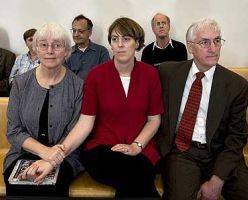
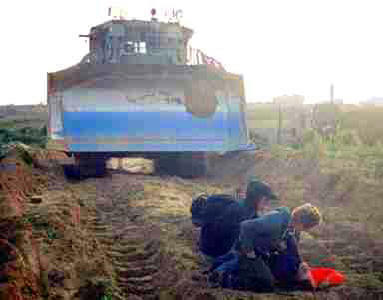
Rachel Corrie wrongful death v Israel
This month, the Haifa District Court in Israel will begin hearing eyewitness testimonies in a civil lawsuit filed in 2005 by Rachel Corrie’s family against the State of Israel for her unlawful killing in Rafah, Gaza. On March 16, 2003, Rachel was crushed to death by a Caterpillar D9R bulldozer while trying to protect the home of a Palestinian doctor from demolition. She was run over and killed by an IDF soldier who was operating the bulldozer. Seven years later, Rachel’s parents are still seeking the truth. The trial is expected to show the circumstances of her death and hold the Israeli military reponsible. Four eyewitnesses to Rachel’s killing have been recently granted visas by Israel to testify but Israel is refusing to allow the Palestinian doctor who treated Rachel and confirmed her death into Israel.
Maria LaHood:
- CCR represented Rachel Corrie in the United States because she was run over by a Caterpillar bulldozer. The same month in 2005, the Corries brought a suit against Israel, in Israel for the killing.
- This suit was on the advice of the US State Department. You can sue Israel, the country. Israel claims immunity.
- Israel’s defense that the bulldozer driver couldn’t see Rachel Corrie in the bright orange jacket.
- Expert witness says Israel’s heavy machinery operator policy says do not use around people.
- Rachel was defending the home and the bulldozer crushed her. Rachel was with the International Solidarity Movement. The Corrie family will present their evidence to the Israeli court and then there’s a 30 day break in the trial. This is not a jury trial, it is before a judge. Corries are asking for information, and accountability.
- In the attacks of Gaza a year ago, more than 4000 houses were demolished.
- Someone was filming at the border at the time of Rachel’s death, the actual part of the tape where she was crushed is missing.
- Mamilla Cemetery Case Update: We’ve asked the special rapporteurs of the United Nations to intervene.
- Michael Ratner: It does seem to be intentionally provocative. To be doing this on a cemetery and calling it the “Center for Tolerance” MamillaCampaign website.
Guest – Staff attorney Maria LaHood. Maria specializes in international human rights litigation, seeking to hold government officials and corporations accountable for torture, extrajudicial killings, and war crimes abroad. Her cases include Arar v. Ashcroft, against U.S. officials for sending Canadian citizen Maher Arar to Syria where he was tortured and detained for a year; Matar v. Dichter, against an Israeli official responsible for a “targeted assassination” that killed 15 Palestinians; Belhas v. Ya’alon, against a former Israeli official responsible for the 1996 shelling of a United Nations compound in Qana, Lebanon, that killed over 100 civilians; Corrie v. Caterpillar, on behalf of Palestinians killed and injured in home demolitions, and Rachel Corrie, a U.S. human rights defender who was killed trying to protect a home from being demolished.
———–
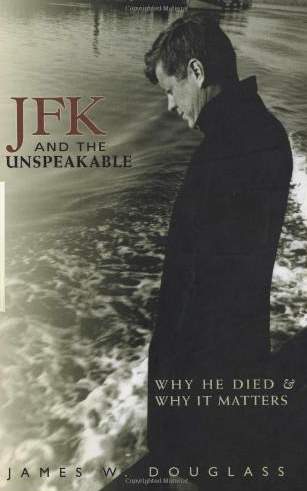
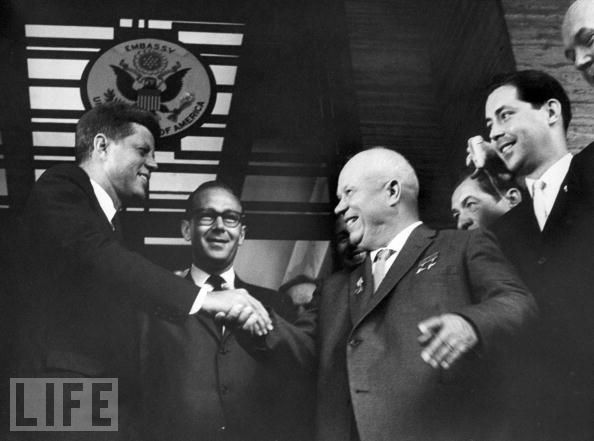
JFK and the Unspeakable: Why He Died and Why It Matters by Jim Douglass
JFK, The Unspeakable, is the first book of 3 on the assassinations of the 1960s. Orbis Books has commissioned author James W. Douglass to write about the murders of JFK, Malcolm X and Martin Luther King, and his the third will be on the assassination of Bobby Kennedy. The heart of JFK the Unthinkable, is not how Kennedy was killed or how Kennedy became a threat to the systemic war machine, but why DID Kennedy die? Author James Douglass says Kennedy knew that he would die and had the guts to stand up to the system and take the hit. This narrative was lost for decades, obscured by disinformation about Kennedy’s character and the conspiracy of his assassination. One review summarizes Douglass’s book in this way : JFK’s belated effort to turn America from an armed culture of victory to a member of an international peaceful world was shot down in Texas for a reason.
Jim Douglass:
- John F. Kennedy’s experience in WWII: He was in the South Pacific, he volunteered. He was on that PT boat.
- What happened on that PT boat, is that it got split into two by a Japanese destroyer. He lost brothers and friends at that time. An extraordinary experience being adrift on the ocean warning other PT boats. The experience create a distrust in military authority.
- He said that he wanted to splinter the CIA into a thousand pieces and scatter to the winds.
- As Kennedy said to his friends, “they figured me all wrong.”
- The Unspeakable: the kind of evil and deceit that seems to go beyond the capacity of words to describe. The midst of war and nuclear arms race, the assassinations of Kennedy, Martin Luther King and Malcom X that the term was used.
- JFK’s vision is articulated in the address June 10, 1963, arising from the turnaround of the missile crisis and Bay of Pigs.
- He wanted to move step by step into a disarmed world. Nikita Khrushchev put that speech all over the Soviet Union. The Cuban Missile Crisis is a deeply misunderstood part of our history, because it’s usually portrayed as Kennedy going to war with Nikita Khrushchev and beating him.
- The truth was that Kennedy and Nikita Khrushchev were in over their heads, the US generals wanted nuclear war, because they had more warheads than the Soviets.
- Nikita Khrushchev: We now have a common enemy from those pushing us toward war.
- At that point the Cold War turned upside down because Kennedy and Khruschev became closer to each other than either was toward their own military power system.
- Vietnam: Kennedy’s military people would not give him an exit policy. He signed the withdrawal order from Vietnam before he was assassinated.
- His friends said that he had an obsession with death. It was not an obsession but a real assessment that he was going to die. If you try to turn around a national security state that is dominating the world,
- and you do so as president of the United States, of course you’re going to die. Kennedy knew that.
- The book is a story on the deliberate destruction of hope, the vision of change, a turning of this country all of which was happening and had to be stopped. US Agencies killed Dr. Martin Luther King – 1999 Verdict
- We’re in the same scene right now with Petraeus and McChrystal setting up Obama. They were dictating terms to Obama, unlike Kennedy, he did not face them down.
- We need to get out ahead of Obama so that he can do something.
Guest -author, James W. Douglass. He’s a longtime peace activist and writer. James and his wife Shelley are co-founders of the Ground Zero Center for Nonviolent Action in Poulsbo, Washington, and Mary’s House, a Catholic Worker house of hospitality in Birmingham, Alabama.
—————————
Afghanistan War, Civil Liberties, Human Rights, Iraq Veterans, Iraq War, Truth to Power
Podcast: Play in new window | Download
Updates:
—–

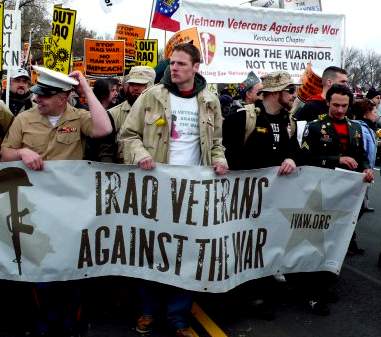
Mass Demonstration Planned: March Forward
On Saturday March 20, there will be a massive National March and Rally in Washington DC organized against the Iraq and Afghanistan wars, while fighting for social and economic justice at home. The demonstrations will pull together veterans, active-duty service members and those have served in the US military. Other mass rallies will be held on the same day in San Francisco, and Los Angeles. The day before on Friday March 19, there will be a day of action and outreach. Today Michael Prysner joins us to give us more information and details on this mass demonstration. Michael recently delivered a powerful speech as an IVAW member. From Michael’s speech, ” Our real enemies are not those living in a distant land whose names or policies we don’t understand; The real enemy is a system that wages war when it’s profitable, the CEOs who lay us off our jobs when it’s profitable, the Insurance Companies who deny us Health care when it’s profitable, the Banks who take away our homes when it’s profitable. Our enemies are not several hundred thousands away. They are right here in front of us.”
Mike Prysner:
- I’m a co-founder of March Forward, it’s also an affiliate with the ANSWER coalition which is Act Now To Stop War End Racism. We know now that there are more people who are becoming tired of the wars and watching 500 million dollars a day squandered on these senseless wars and occupations.
- On March 20, you’re going to see thousands of people from all over the country. We’re coming off of a year of President Obama being elected. Many people thought that they were voting for an to the war, and change to the colonial policies of the US government.
- So, change comes not from an election, but through a struggle and mass movement. We need to be there on the anniversary of the criminal invasion of Iraq.
- Demands: US out of Iraq and Afghanistan. An immediate end to occupations. Freedom for Palestine, reparations for Haiti, money for jobs, education, housing and health care, not for war.
- WAR: This is about the United States expanding its reach economically, to seize the local economies and natural resources and the markets of these countries. These wars are for empire to expand US business interests.
- I went to Iraq in 2003 during the invasion, and then month after month I thought we were there for a very different purpose. There was a growing frustration within the military, people don’t want to go and kill and be killed. People join the military because they need access to a job, education, health care.
- It was the Iraqi children that I saw, that cried and screamed at us, I dragged from their houses during raids. It was innocent Iraqis that were shot. This is what turned me around.
- Seeing their faces, that made me realize that we were not the liberators that we thought we were going to be.
- Afghanistan: Soldiers are used as bait. They are put at an outpost and wait to get attacked. They get attacked and call in air strikes. Soldiers are put in danger, without any real expressed purpose. Now the Generals have warned us that we should be braced for hundreds of casualties every month.
- We have these 2 things, the horrible deaths and destruction and then no reason why. It’s cloaked in chauvinism and racism, and that’s the only justification.
Guest – Michael Prysner, lead coordinator of March Forward and Iraq Veterans Against the War member.
————
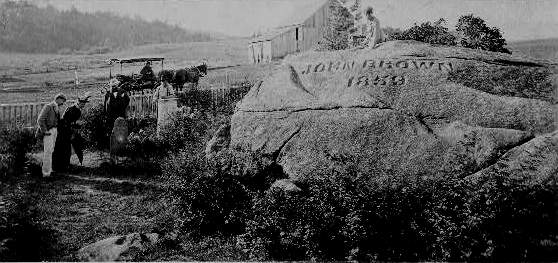

John Brown’s Farm Faces Possible Closure – Update
Today we look into the possible closure of the John Brown Farm State Historic Site in North Elba, New York. State lawmakers have announced that budget cuts could result in the closure of the farm where the famed abolitionist lived with his family and is now buried. There are others buried there, those that perished in Brown’s 1859 raid on a federal arsenal in Harper’s Ferry. Historic sites and parks are often the first casualties of budget cuts. In one scenario, the New York legislature would have to approve a proposed transfer of 5 million dollars from the Environmental Protection Fund to shore up the budget cuts that would affect New York parks including John Brown’s farm. Meanwhile, many New York residents are pulling together to speak out and save this historic area. John Brown’s Body – song Recent News: John Brown Resolution Introduced by Senator
Louis DeCaro:
- The land was given to John Brown by Gerrit Smith who gave land grants to many including “free blacks” from New York State. The area was nicknamed Tim Buk Tu. John Brown lived up there in a rented farm, but later his son in law built the farm house that is there (1854)
- He was somewhat of a black nationalist as well as being a forerunner in the civil rights movement. He supported black self determination. Some people had said it was an underground railroad stop and it really wasn’t.
- For years, African American churches made trips to the farm, John Brown was buried there, of course after being hanged in W. Virginia in 1859. It’s a spiritual experience, you ascend this road, you get to the top, you see the farm house there. There’s a great boulder where John Brown loved to sit on this boulder and read his Bible.
- I brought Charles 37X up there as an elderly man in 1999. I’ll never forget the impact this had, the connections he made up there. It’s marginalized in American memory.
- I believe as we progress as a society that this will a place that’s more treasured.
- There’s optimism but still the real possibility (of the farm to be closed)
- Write to: Assembly woman Teresa Sayward / 940 Legislative Office Bldg / Albany NY / 12248 / EMAIL: sayward@assembly.state.ny.us
- State Senator Betty Little / Room 506 / Legislative Office Bldg / Albany NY / 12247/ EMAIL: little@senate.state.ny.us
Guest – Louis A. DeCaro, Jr. Ph.D., is Assistant Professor of History at Alliance Theological Seminary’s New York City campus, and is also the pastor of an urban church. Of course, he often dreams of being a full-time researcher and student of the life and letters of John Brown the abolitionist. His latest work is entitled, “John Brown: The Man Who Lived” (Lulu, 2009), a collection of essays prepared in honor of the sesquicentennial of the Harper’s Ferry Raid and the hanging of John Brown. Lou’s previous works on the abolitionist are “John Brown–the Cost of Freedom” (International Publishers, 2007)–which features new insights based on cutting edge research and transcriptions of twenty John Brown letters, and ‘Fire from the Midst of You’: A Religious Life of John Brown” (New York University Press, 2002). He is also a contributor to “The Afterlife of John Brown,” edited by Eldrid Herrington and Andrew Taylor (2005), and Jean Libby’s monumental “John Brown Photo Chronology” (2009).
——————————————————————————————
Civil Liberties, Guantanamo, Human Rights, Iraq War, Targeting Muslims, Torture, Truth to Power
Podcast: Play in new window | Download
Updates:
—-
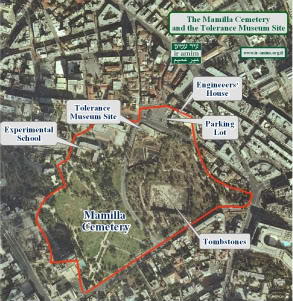
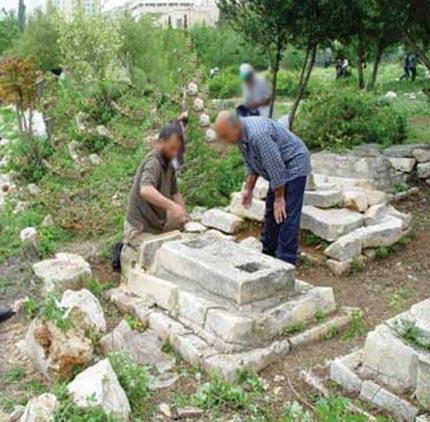
Simon Wiesanthal Museum of Intolerance: Mamilla Cemetery In Jerusalem
Critics continue to speak out against plans to build the new Simon Wiesanthal Museum of Tolerance near the Mamilla Cemetery. The cemetery is an 800 year old Muslim burial in the heart of Jerusalem and covers about 12 percent of the plot of the new 250 million dollar museum. Today we examine the ongoing legal fights to preserve the cemetery. Mamillacampaign.org
The museum construction has been halted several times in the last few years. Recently, the Israel’s Supreme Court ruled to go ahead with the continued construction, since there was no objection in 1960 when a parking lot was built over a small part of the cemetery. Controversy swirls around the project, the previous architect of the museum project designed an imposing futuristic mix of titanium, glass and stone. Police detain filmmakers
The initial outcry opposing the project came from the Palestinian community, Israeli archaeologists and Ultra-Orthodox Jews. Meanwhile, construction of the museum continues in portions of the area where human remains have not been found. CCR Synopsis
Dima Khalidi:
- Mamilla Cemetery is a huge piece of land located in West Jerusalem It’s an ancient cemetery dating back possibly to the 7th century. Palestinians buried their relatives there since at least 1948
- It has the ancestors of the biggest Jerusalem families including my own family.
- The cemetery has been constantly built on since the fifties and sixties. Our petition to several United Nation bodies is really part of a larger opposition. UN rapporteur on Freedom and Belief and the rapporteur on Ending Racial Discrimination
- We are asking that they label the Mamilla cemetery as a historic site and protect it and move this project, also find the remains that have been dug up so that the Palestinian families can re-bury them. 250 sets of bones removed, at least.
- There are four layers of burials dating back to the 11th century. 2 thousand people buried there.
- The museum’s archeologist called it an archeological crime. The mayor of Jerusalem offered a different site.
- Michael Ratner: what’s going on here is the expulsion of the memory and history of Musliims and Palestinians from Jerusalem
- Israeli Supreme Court handed down a decision in December 2009 affirming previous decision that it was legal to build this museum on top of the cemetery.
Guest – Palestinian-American lawyer Dima Khalidi. Dima is based in Chicago, she has a JD from DePaul University College of Law in Chicago and a Masters from the School of Oriental and African Studies, University of London in International and Comparative Law with a focus on Islamic Law. She has worked with the People’s Law Office in Chicago, and the Center for Constitutional Rights (CCR) in New York. Prior to studying law, she spent two years working in the West Bank at Birzeit University on a project studying the role of customary/tribal law in Palestinian society. She has been working on the Mamilla cemetery case with CCR and other attorneys in recent months.
——-
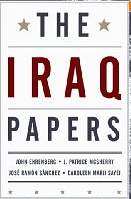
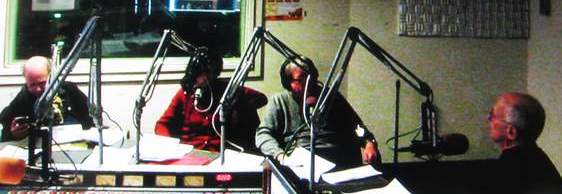
The Iraq Papers: John Ehrenberg
Political science professor and author John Ehrenberg joined hosts live in the studio to talk about a book he had worked on with 4 other colleagues titled The Iraq Papers. (From the review) The book offers a compelling documentary narrative and interpretation of this momentous conflict. With keen editing and incisive commentary, the book weaves together original documents that range from presidential addresses to redacted memos, carrying us from the ideology behind the invasion to negotiations for withdrawal. These papers trace the rise of the neoconservatives and reveal the role of strategic thinking about oil supplies.
The authors also provide Congressional resolutions and speeches by President Bush, but internal security papers, Pentagon planning documents, the report of the Future of Iraq Project, and eloquent opposition statements by Senator Robert Byrd, other world governments, the Non-Aligned Movement, and the World Council of Churches.
John Ehrenberg:
- The book is a compendium of presidential speeches, position papers, news conferences.
- All the way from those who planned it beginning in the late 1990s to those who fought it in Iraq,
- This is not a neutral book, this is a reader with an attitude. It’s an anti-war reader. We try to be fair, and try to represent the many voices in the Iraq war. The lead up to the war so marked by misinformation, duplicity, lies, silence, everybody’s hands are dirty on this.
- As we debated, we really came to the one single variable that could be used to describe this war.
- with the fall of the Soviet Union is the late 80s, there arose in Washington a group of insiders who thought with considerable evidence that the world had passed from a bipolar system to a unipolar system, these groups became consolidated into groups one of which became PNAC (Project for the New American Century)
- Their view was that history had presented the US with a unique moment to cement its hegemony over the entire world. It’s really as simple and scary as that.
- Why care about it now? A lot of reasons. To what extent did unilateralism and pre-emption simply mirror the longstanding trends in American foreign policy? We split the middle and decided both were true.
- The people who signed PNAC go into the state department of the Bush Administration.
- The neo-conservatives haven’t disappeared. Every couple weeks, Dick Cheney gets on the air to attack Obama. Sara Palin.
- The architecture of the Iraq war, the reasons for it are still alive and kicking. There’s a very good piece in the NY Times that Gary Wills wrote. He says it doesn’t matter how reformist he/she is that comes into power, confronts the “deep state”
- They are deep beneath the surface and are immune to democratic power and they are not touched by elections or anything else. Coming into power (Obama) is confronted en mass by secret treaties, foreign obligations, military entanglements, hundreds of bases, hundreds of countries.
- Assuming he was honest, he would be unable to disentangle from that apparatus. I think Afghanistan is a way to protect Obama from the right on charges of abandoning Iraq. I don’t think Obama’s people are under any illusions to think that they can do what others couldn’t in recorded history.
- This is a holding operation to provide them with cover. We have a document called the Kubark, its a CIA manual (read manual) that became declassified a few years ago, that basically outlines all of the torture techniques.
- The basic orientation of the Bush foreign policy was organized around what we call pre-emption.
- These guys were clear in their intention, and the astounding thing is they announced their intention years before.
- None of this should have come as a shock to people. The claim was power trumps everything.
- You can’t solve political issues militarily, and that’s what the neo-cons were convinced they could do.
Guest – John Ehrenberg, author of Servants of Wealth, The Rights Assault on Economic Justice, and recently, The Iraq Papers. He’s also professor of political science at Long Island University.
Afghanistan War, Civil Liberties, Human Rights, Iraq Veterans, Iraq War, Supreme Court, Surveillance, Targeting Muslims, Torture, Truth to Power, War Resister
Podcast: Play in new window | Download
Updates:
—
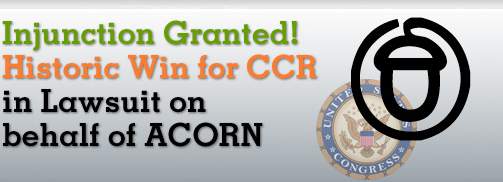
Historic Win for Constitutional Rights! Injunction Granted in CCR Lawsuit on Behalf of ACORN
Recently, a federal judge blocked Congressional effort to withhold funding to the community group ACORN. In the decision, the court found that ACORN can show that the targeting by Congress in de-funding the anti-poverty group, is a violation of the Constitution’s prohibition against the Bill of Attainder. This is a legislative act which singles out a specific person or group for punishment. Jules Lobel, CCR Vice-President and Cooperating Attorney says quote “This historic decision by the Court affirms the fundamental constitutional principle that the Congress cannot be judge, jury, and executioner.” Following the decision, Bertha Lewis, ACORN’s Executive Director, said quote “The court’s decision is a victory not only for the many dedicated citizens who work with ACORN to improve their communities and promote responsible lending and homeownership, but for the Constitution and the rights of all Americans.”
Bertha Lewis:
- ACORN is 39 years old, started in Little Rock, Arkansas. It grew out of the welfare rights movement, George Wiley founder of WRO. We began to organize folks in the South first, just around bread and butter issues.
- Red-lining banks, block busting racist strategies, potholes. Most people would know us by the housing work that we did, we challenge the banks for the red-lining tactics. I was the executive director for New York, I’ve been with ACORN for almost 20 years.
- We had an internal scandal, where the founder Wade Rasky had allowed his brother in a 2 year period of time misappropriate almost a million dollars. I was appointed CEO after that for my New York City organizing work. We’re (ACORN) the best organizers, but we’re not the best managers.
- It was fine if we stuck with soup kitchens, etc, but we started registering poor people to vote around issues. The minimum wage law passed in Florida. I think we became a threat when we actually moved those people to the polls. Now we begin to change the balance of power.
- We need to organize multi-ethnic, multi-culture, multi-issue, and build an institution where people have real power. Karl Rove leaked emails revealed : “Bring me the head of ACORN.”
- The organizing was effective because we’re not a single issue organization. We can be better managers, but I guess we had a naivete about the forces we’ve been going against all these years.
- Since 2000, the right has seen us as a growing threat, we were effective and almost immediately we were accused of voter fraud, voter registration fraud. Nothing stuck. They decided, we got to keep (ACORN) in the news, we gotta keep attacking them.
- This filmmaker – James O’Keefe made up this fantasy scenario, was racist and sexists. So, they had this series of videos, when you looked at it, it was very sensational.
- Anyone could see it was highly edited, where they had this woman say she hadn’t paid taxes, and there are these girls from Honduras we want to bring over.
- So, what you see in these tapes is some of our workers giving advice. Next thing it was online, it went viral. Funders were saying they didn’t want to be associated with us. Five hundred organizers, four hundred thousand member families.
- Three times before the Republicans tried to say ACORN was a criminal organization, no due process. In October after that video, they put in writing, no funds given to ACORN. Omnibus funding bill. The bill passed, only 7 brave senators voted against it.
- Congress (right wing) was pushed to name ACORN, because federally funded groups such as Blackwater / KBR / would be snared in broad language net. This is about the Constitution, it applies to poor people, it applies to poor people’s organizations.
- CCR lawyers – “I call them Jedi Knights for Justice”
Guest – Bertha Lewis, Chief Executive Officer and Chief Organizer of ACORN, the largest community organization in the country. Appointed in May 2008, Ms. Lewis oversees the operations of its 400,000 strong membership, which is active in over 110 cities across the country. A 16 year veteran of the organization, Ms. Lewis was most recently the Executive Director of ACORN’s New York affiliate and is a founding Co-Chair of the New York Working Families Party.
——————-
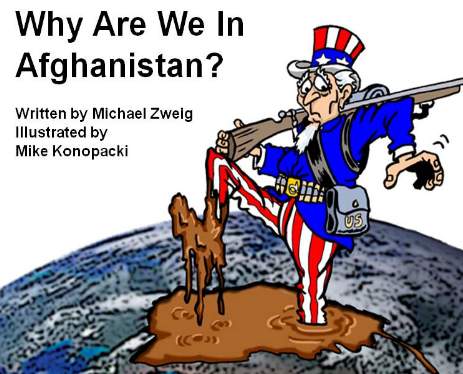
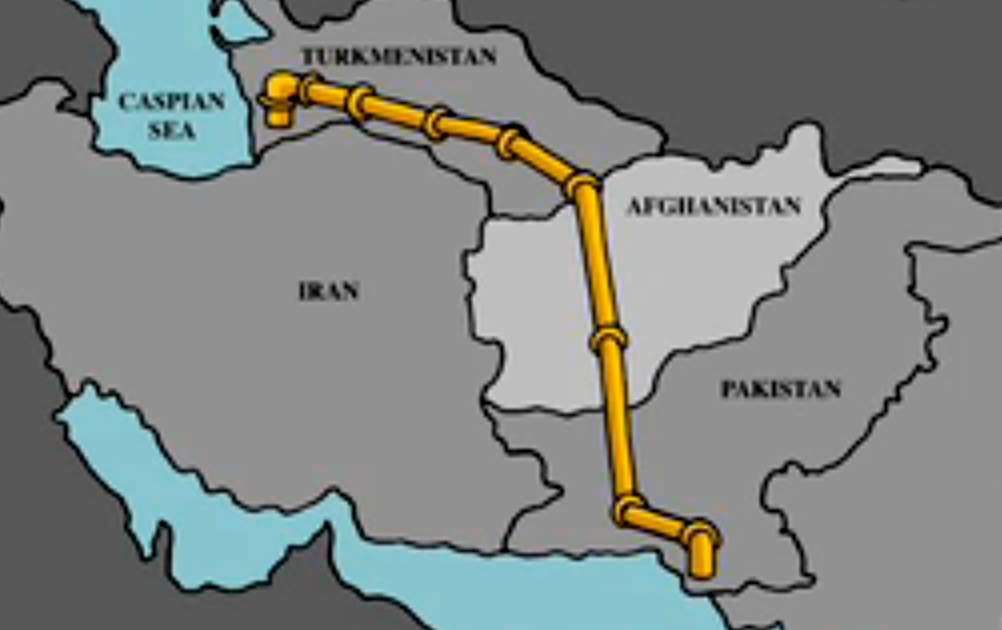
Why Are We in Afghanistan?
Why Are We in Afghanistan is the question many listeners still have and is the title of a film by Michael Zweig. The film examines how the reasons for the Afghanistan war have clouded since September 11, 2001. The conflict centers on geo-political positioning that holds the US in the war torn landscape. At this stage, the Afghanistan war is a humanitarian disaster, the civilian casualities are stunning and conditions on the ground are desperate for Afghani women and children. The film, Why Are We in Afghanistan? is an educational resource for communities, unions, veterans and active duty military, classes, and anyone who wonders why we are in Afghanistan, and what to do about it.
Michael Zwieg:
- We started out being in Afghanistan because of the 9/11 attacks, the idea was they attacked us from a base in Afghanistan, and we’re going to get the bad guys. Once they were there it became clear, that they weren’t interested in going to Afghanistan, they were interested in invading Iraq.
- Starting in 2002, the focus left Afghanistan, we were there, in an inactive state. Then comes the presumed resolution in Iraq, then Obama comes in and tries to be the president, running the campaign of prosecuting the good war.
- Why are we now doubling down in Afghanistan?
- Obama’s latest speech says primary reason for war escalation is Taliban, who are sheltering Al-Qaeda. To “nation-build” – stabilize Afghanistan. Al-Qaeda is in Pakistan, though, if you were to stabilize Pakistan, Al-Qaeda would go to Somalia, etc. It’s like wack-a-mole.
- General Petraeus’s American Counterinsurgency Doctrine. 2006
- They accept in the doctrine, that counter-insurgency is 80 percent civilian work and taking care of civilian population / 20 percent military. But if you look at the budget in place right now for 2010, it’s 6 percent civilian and 94 percent military.
- So, what’s going on? It’s not really about counterinsurgency, it’s not really about Al-Qaeda? We shouldn’t downplay the domestic and military pressure to do this.
- Sentiment about Afghanistan War changed in the US Labor movement summer of 2009
- Pipelanistan: During collapse of Soviet Union, the central asia “stan” countries came in to play.
- The US department of Energy forecasts between the year 2000 and 2025, China’s need to import oil is going to increase to 73 percent of its oil needs they will have to import.
- Pakistan’s agent in Afghanistan are the Taliban.
- Unocal – Moderate size US oil company, negotiating with Taliban and Pakistan to build pipeline.
- Unreported: There were meetings in Turkmenistan, in 2002 with the Bush Administration and Asian development Bank to build a pipeline going to Arabian Sea.
- There was a meeting in 2001 before 9/11, with Cheney and energy executives. They issued a report on American energy strategies May 2001. They identified the Central Asia republics as a major source of oil and natural gas.
- They identified these resources, Cheney and his crew, as a source to block from the Chinese and others from getting those resources.
- We’re in Afghanistan because of both strategic interests which include the oil resources and to block others.
- What are going to do, we can’t win, but we can’t not fight it. Obama doesn’t see a way unless there’s a mass movement in this country or military rebellion.
- Barbara Tuchman – March of Folly – Leaders of countries lead them into disasterous courses, against advice and alternative policies.
- You can’t reduce it all to simple, rational calculations because there are other courses that they could do.
- How do you make it hot for Obama on the decisions that he’s made? How do you build the social movement.
- We’ve built quite a presence in the labor movement around Iraq.
- Almost spending 100 billion dollars a year in Afghanistan. You could create a lot of jobs, tax relief, stimulus systems.
- War good for economy? No. For every dollar spent on military spending, you create way fewer jobs than the same money spent on building roads, or turbines for wind farms.
Guest – Michael Zwieg, Professor of Economics and Director of the Center for Study of Working Class Life at the State University of New York at Stony Brook, where he has received the SUNY Chancellor’s Award for Excellence in Teaching. His most recent books are What’s Class Got To Do With It? American Society In the 21st Century and The Working Class Majority: America’s Best Kept Secret (2000). He was executive producer and co-writer of the documentary Meeting Face to Face: The Iraq-US Labor Solidarity Tour. (Center for Study of Working Class Life, 2006).
Professor Zweig received his PhD in economics in 1967 from the University of Michigan where, as an undergraduate, he was a founding member of Students for a Democratic Society (SDS), and as a graduate student helped found the Union for Radical Political Economics (URPE).
——————————————————-








